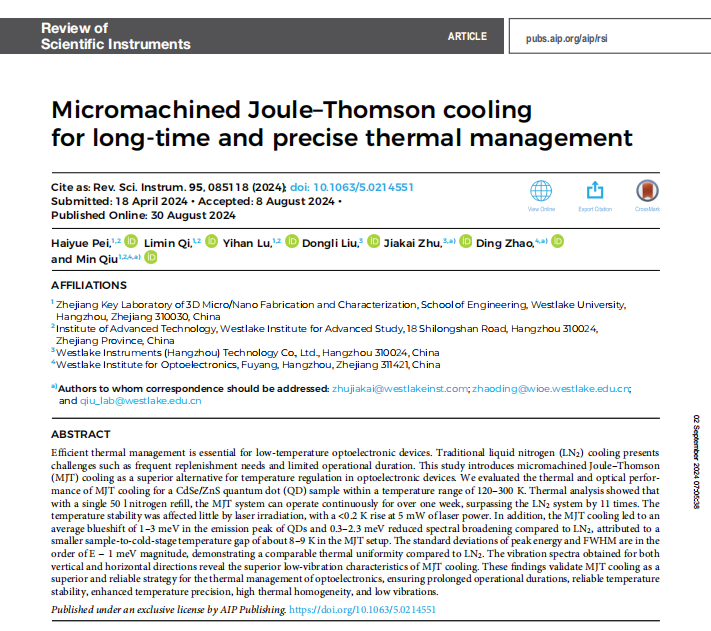Professor Min Qiu’s research team has recently made significant advancements in device thermal management. The research outcome of Ph.D. student Haiyue Pei, titled "Micromachined Joule–Thomson cooling for long-time and precise thermal management", has been successfully published in the Review of Scientific Instruments journal. The paper thoroughly describes an innovative approach to thermal management using micromachined Joule-Thomson coolers, paving a new way for the thermal management of optoelectronic devices.
In low-temperature optoelectronic devices, particularly infrared detectors, maintaining a low operating temperature is crucial. The efficient operation of these devices relies on precise thermal management. However, traditional liquid nitrogen cooling methods have several limitations, such as the need for frequent replenishment and the issue of ice blockages, which severely restrict the long-term stable operation of the devices.To overcome these challenges, Professor Min Qiu's team proposed a novel cold stage based on the micromachined Joule-Thomson cooling. This technology utilizes microchannels and the Joule-Thomson cooling effect, which offer a low gas consumption rate, and minimal vibration, and can be effectively coupled with optoelectronic materials within a vacuum dewar.
The paper details the device construction, characterization methods, and results analysis. Experimental data indicate that, compared to traditional cooling technologies, this technology significantly extends the operating time at low temperatures with the same nitrogen consumption, reduces vibration levels, and maintains high temperature stability and uniformity. The publication of this research outcome offers new perspectives and solutions for the thermal management of low-temperature optoelectronic devices.


